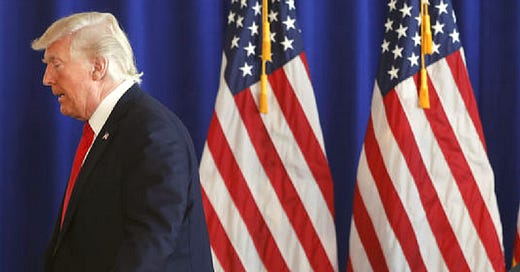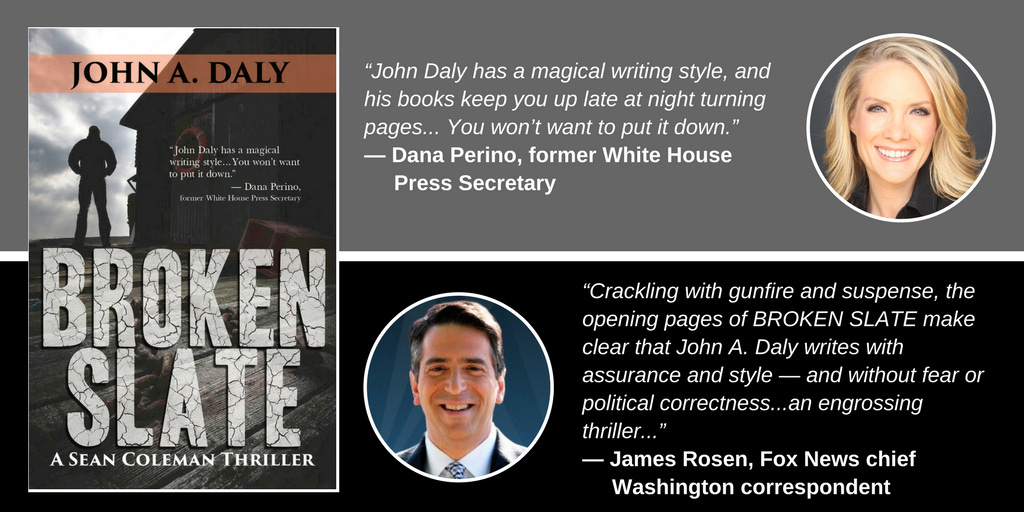
In October of last year, then Candidate Trump said in a presidential debate, "To solve a problem, you have to be able to state what the problem is or at least say the name."
He was referring to President Obama's well-documented reluctance to use the phrase "radical Islamic terrorists" when speaking of those who commit terrorist attacks in the name of Islam. Additionally, Trump claimed that his presidential opponent, Hillary Clinton, was guilty of the same negligence and political cowardliness. And you know what? Trump was right.
One of the reasons Trump won the election a month later was because a lot of voters believed that Democratic leaders in Washington didn't treat the terror threat with the seriousness it deserved. Over the Obama years, Americans watched helplessly as bloody scenes from Europe, and on our own soil, played out in the news, while the president and the Democrats insisted that the problem was overblown.
We listened to our nation's commander-in-chief refer to ISIS as a "JV team," and blame the Benghazi attacks on a misunderstanding over a video. All the while, liberal pundits took smug pride in explaining that Americans were more likely to be killed by lightning than terrorists.
Perhaps the biggest insult was when Obama sought to identify moral equivalency between Islamic radicals and Christians, suggesting that those of the Christian faith should get off their "high horse" and look at past (in some cases, ancient) atrocities committed in the name of their religion.
Trump took aim at the politically-correct, progressive blathering, and it served him well during the campaign. Drawing attention to Obama and Hillary's refusal to use the phrase "radical Islamic terrorism" highlighted their weakness. Conversely, calling out the problem — unflinchingly, by name — bolstered a perception that Trump was strong.
But as we were reminded this weekend, Trump's rhetoric during the election was not representative of a guiding principle, but rather a selective political calculation.
On Saturday, violent exchanges in Charlottesville, Virginia between alt-right white supremacists and Antifa counter-protesters led to an alt-righter driving his car into a crowd of people (killing one and injuring 19). From his golf resort in New Jersey, President Trump stepped up to a podium to publicly address the terrible situation. Many expected him to call out the violators by name. Instead, he punted.
"We condemn in the strongest possible terms this egregious display of hatred, bigotry and violence on many sides. On many sides. It has been going on for a long time in our country — not Donald Trump, not Barack Obama. It has been going on for a long, long time. It has no place in America.”
Many sides?
No special focus on the ideology or individuals behind this clear-cut act of domestic terrorism? Nothing about the alt-right, or white supremacists? Nothing about racism? Being that "bigotry" can mean a whole host of things, using the term in this instance just doesn't cut it.
It should be noted that the left-wingers from the Antifa crowd (billed as an anti-fascist group) contributed to the weekend protest-violence too. But when a white supremacist makes a choice to plow his car into a crowd of people (a method similar to Islamic terrorist attacks in Europe), calling out the situation's villain(s) should be a slam-dunk for any president.
But with Trump, it wasn't. And that shouldn't be entirely surprising.
The unfortunate truth is that our president has a history of struggling to denounce white supremacist groups. The Weekly Standard's Stephen Hayes detailed that history (most of which took place during the campaign) in a column published last night. Additionally, Hayes offered up some possible explanations for Trump's behavior on this issue:
"Why does Trump do this? Is he a racist? Merely sympathetic to the kind of racism embraced by the 'alt-right'? Or is it simply his eagerness to criticize people who oppose him and praise—or at the very least, avoid criticizing—those who support him?"
Explanation number three is likely the correct one.
Alt-righters have been fervent supporters of President Trump since he first threw his hat into the political ring. Some of that support came from Trump's nationalist rhetoric, his tough-talk on the border wall, and even his repeated shots at Judge Curiel. Some of it came from the president's chief strategist, Steve Bannon, who has admitted to giving the alt-right a platform on the website he once ran, Breitbart.com (some would say he still runs it).
Trump has never given an overt nod to alt-righters, but that hasn't deterred the likes of David Duke from believing our president is a once-in-a-lifetime ally. Though the alt-right is relatively small in size, they are very vocal, very active on the Internet, and fiercely loyal to Trump. They are among his most impassioned advocates.
Thus, for a man who thrives off of fawning praise and allegiance to his brand, it may be harder — harder than any of us realize — for Trump to resolutely kick these people to the curb. He may not share their views, but he shares ones of their big passions: Trump. The significance of that kinship can't be underestimated.
Where political correctness kept Obama and the Democrats from calling out evil, personal ego is likely doing the same for Trump. Both are inexcusable abdications of leadership.












